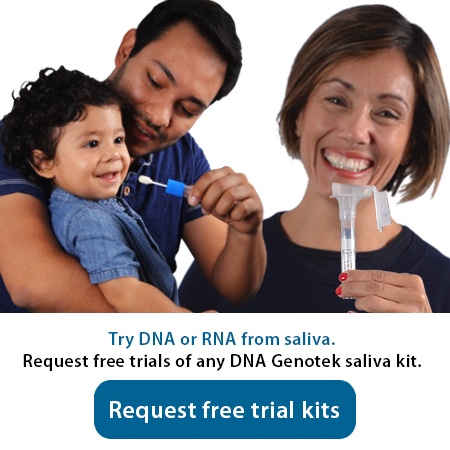2010-11-18
 Do you like getting stuck by a needle when you give a sample of blood? Neither do I. It especially troubles me when I see one of my children have a blood draw. Now imagine that you’re a leukemia patient. Needles, needles everywhere! What if there was a way for you to get the testing that you need without the necessity of having another needle stick?
Do you like getting stuck by a needle when you give a sample of blood? Neither do I. It especially troubles me when I see one of my children have a blood draw. Now imagine that you’re a leukemia patient. Needles, needles everywhere! What if there was a way for you to get the testing that you need without the necessity of having another needle stick?
I work in an HLA laboratory. You may have heard of “tissue typing” or “good” matches during discussions about transplantation. What exactly are we talking about? We are talking about a set of proteins on the surface of every person’s cells called HLA. HLA stands for Human Leukocyte Antigen. Let’s look at each of those words to understand what they mean. Human is easy enough to understand. Leukocyte is the scientific name for white blood cells that are found in the blood. Blood has red cells and white cells floating around in it. Red cells carry oxygen to the cells of the body. White cells are the cells responsible for all of the normally wonderful things that the body’s immune system does. Antigen is a name that immunologists and physicians use to describe anything that the immune system can recognize, foreign or not. In this case, antigens are proteins on the surface of cells that act like little flags. So Human Leukocyte Antigens (HLA) are “flags” that the white cells of the body look at to determine if there is something wrong and if a response is necessary.
Normally, the immune system works beautifully to find bacteria or viruses that may have invaded the body and mount an aggressive attack to destroy the invaders. One of the reasons that people feel sick when they have an infection is because of the immune system doing its work. In the case of organ and bone-marrow transplants, the immune system needs to be knocked down or suppressed so that the immune system does not destroy the transplanted organ.
How can the body’s immune system tell that a transplanted organ is foreign and try to destroy it? The answer is HLA. A transplanted organ carries a set of HLA “flags” on the surface of its cells. The immune system is able to recognize those flags as foreign and try to destroy the invader. One way to prevent the immune system from destroying the transplanted organ is to give drugs that prevent the immune system from doing its normal work of trying to destroy foreign invaders. Another way to prevent or delay the immune system from destroying a transplanted organ is to find an organ that has as many of the same flags as possible. We determine what the HLA “flags” are in the transplant recipient and donor in the process of tissue typing.
When a patient goes through the pre-transplant workup, one of the tests performed is tissue typing to see what HLA antigens that patient has. When a patient is put on the transplant list, the HLA antigens are placed into a special computer system, along with several other pieces of information. When a potential donor is identified, the donor is tissue typed and the donor’s HLA type is placed into the same computer system. A great deal of priority is given to people on the waiting list whose HLA type closely matches the donor’s HLA type.
So what does all this have to do with avoiding needles? Well, there is a way for leukemia patients to participate in HLA testing without having to suffer through another blood draw. The Oragene sample collection kit works well for HLA testing. I have seen excellent results with DNA from saliva collected with Oragene. To learn more about my results with the Oragene kits, watch for a follow-up blog posting in the next few weeks.


